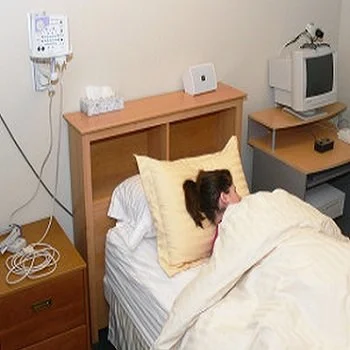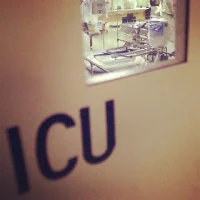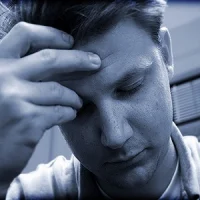Results of a new study, reported in the journal Sleep, provide a new understanding of how sleep deprivation can lead doctors, first responders, military personnel and others in a crisis situation to make catastrophic decisions.
For the first time, researchers at Washington State University created a laboratory experiment that simulates how sleep loss affects critical aspects of decision making in high-stakes, real-world situations. Although previous laboratory research consistently showed sleep loss degrades attention, its effects on demanding tests of cognition like decision-making appeared to be relatively small.
Decision-making is a dynamic process that requires a person to learn what is going on nearby as a result of his or her actions and changing circumstances. A surgeon, for example, might notice a change in a patient's vital signs midway through a procedure. The surgeon can then use this feedback to decide a better course of action.
"A novel aspect of this study was using a simple laboratory task that captures the essential aspect of real-world decision-making of adapting to new information in a changing situation," says John Hinson, professor of psychology at WSU. "Prior studies of sleep loss and decision-making have not realised how important adapting to changing circumstances is in determining when sleep loss will lead to decision-making failures."
Prof. Hinson and colleagues enrolled 26 healthy adults to take part in their study conducted at the Sleep and Performance Research Center at WSU Spokane. Thirteen of the participants were randomly selected to go 62 hours without sleep two days into the study; the other half of the group was allowed to rest. For six days and nights, the participants lived in a hotel-like laboratory where they performed a specially-designed reversal learning task to test their ability to use feedback to guide future decisions.
In the task, participants were shown a series of numbers that, unknown to them, were pre-assigned to have either a "go" (response) or "no go" (non-response) value. They had less than a second to decide whether or not to respond to each number shown. Each time they correctly identified a number with a "go" value, they received a fictitious monetary reward. Errors resulted in a loss.
Both the sleep-deprived group and the controls were able to catch on and selected the right numbers. The researchers then reversed the contingencies so that subjects had to withhold a response to the "go" numbers and respond to the "no go" numbers. They observed how the switch confounded the sleep-deprived participants who, after being shown 40 numbers with reversed contingencies, had almost zero success. In contrast, the rested participants would catch on to the switch within 8-16 numbers.
The findings indicate that no matter how hard a person wants to make the right choice, sleep deprivation does something to the brain that simply prevents it from effectively using feedback. The WSU study provides a new tool for investigating how sleep loss leads to decision errors in real-life situations where information emerges over time.
"Our findings tell us that putting sleep-deprived people in perilous environments is an inherently risky business and raises a number of medical, legal and financial implications," says Hans Van Dongen, director of the Spokane sleep centre.
Source and image credit: Washington State University
For the first time, researchers at Washington State University created a laboratory experiment that simulates how sleep loss affects critical aspects of decision making in high-stakes, real-world situations. Although previous laboratory research consistently showed sleep loss degrades attention, its effects on demanding tests of cognition like decision-making appeared to be relatively small.
Decision-making is a dynamic process that requires a person to learn what is going on nearby as a result of his or her actions and changing circumstances. A surgeon, for example, might notice a change in a patient's vital signs midway through a procedure. The surgeon can then use this feedback to decide a better course of action.
"A novel aspect of this study was using a simple laboratory task that captures the essential aspect of real-world decision-making of adapting to new information in a changing situation," says John Hinson, professor of psychology at WSU. "Prior studies of sleep loss and decision-making have not realised how important adapting to changing circumstances is in determining when sleep loss will lead to decision-making failures."
Prof. Hinson and colleagues enrolled 26 healthy adults to take part in their study conducted at the Sleep and Performance Research Center at WSU Spokane. Thirteen of the participants were randomly selected to go 62 hours without sleep two days into the study; the other half of the group was allowed to rest. For six days and nights, the participants lived in a hotel-like laboratory where they performed a specially-designed reversal learning task to test their ability to use feedback to guide future decisions.
In the task, participants were shown a series of numbers that, unknown to them, were pre-assigned to have either a "go" (response) or "no go" (non-response) value. They had less than a second to decide whether or not to respond to each number shown. Each time they correctly identified a number with a "go" value, they received a fictitious monetary reward. Errors resulted in a loss.
Both the sleep-deprived group and the controls were able to catch on and selected the right numbers. The researchers then reversed the contingencies so that subjects had to withhold a response to the "go" numbers and respond to the "no go" numbers. They observed how the switch confounded the sleep-deprived participants who, after being shown 40 numbers with reversed contingencies, had almost zero success. In contrast, the rested participants would catch on to the switch within 8-16 numbers.
The findings indicate that no matter how hard a person wants to make the right choice, sleep deprivation does something to the brain that simply prevents it from effectively using feedback. The WSU study provides a new tool for investigating how sleep loss leads to decision errors in real-life situations where information emerges over time.
"Our findings tell us that putting sleep-deprived people in perilous environments is an inherently risky business and raises a number of medical, legal and financial implications," says Hans Van Dongen, director of the Spokane sleep centre.
Source and image credit: Washington State University
Latest Articles
healthmanagement, sleep deprivation, decision-making, feedback, laboratory, brain
A new study provides a new understanding of how sleep deprivation can lead doctors,, military personnel and others in a crisis situation to make catastrophic decisions.










